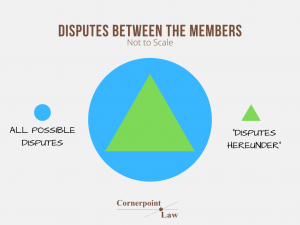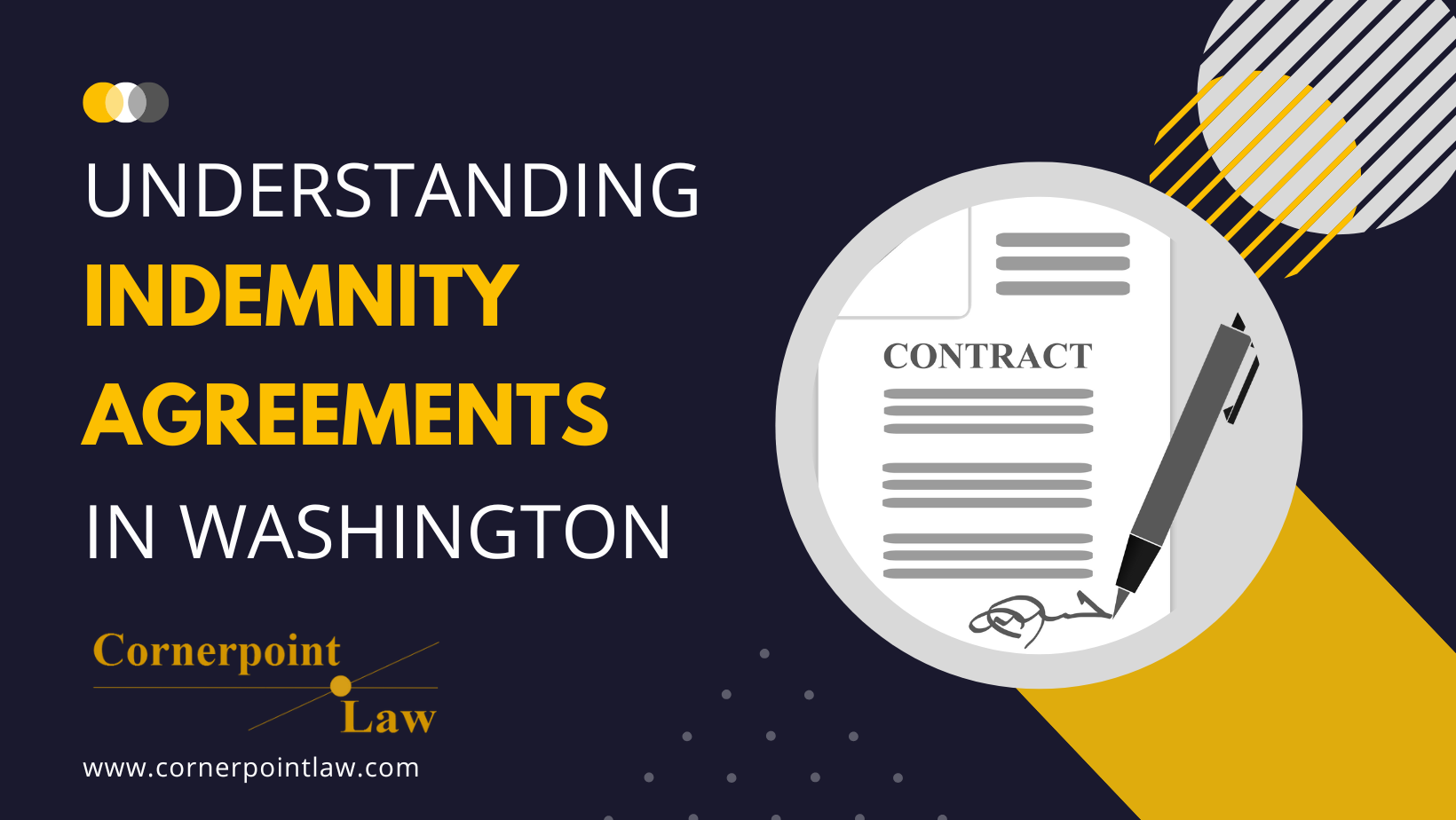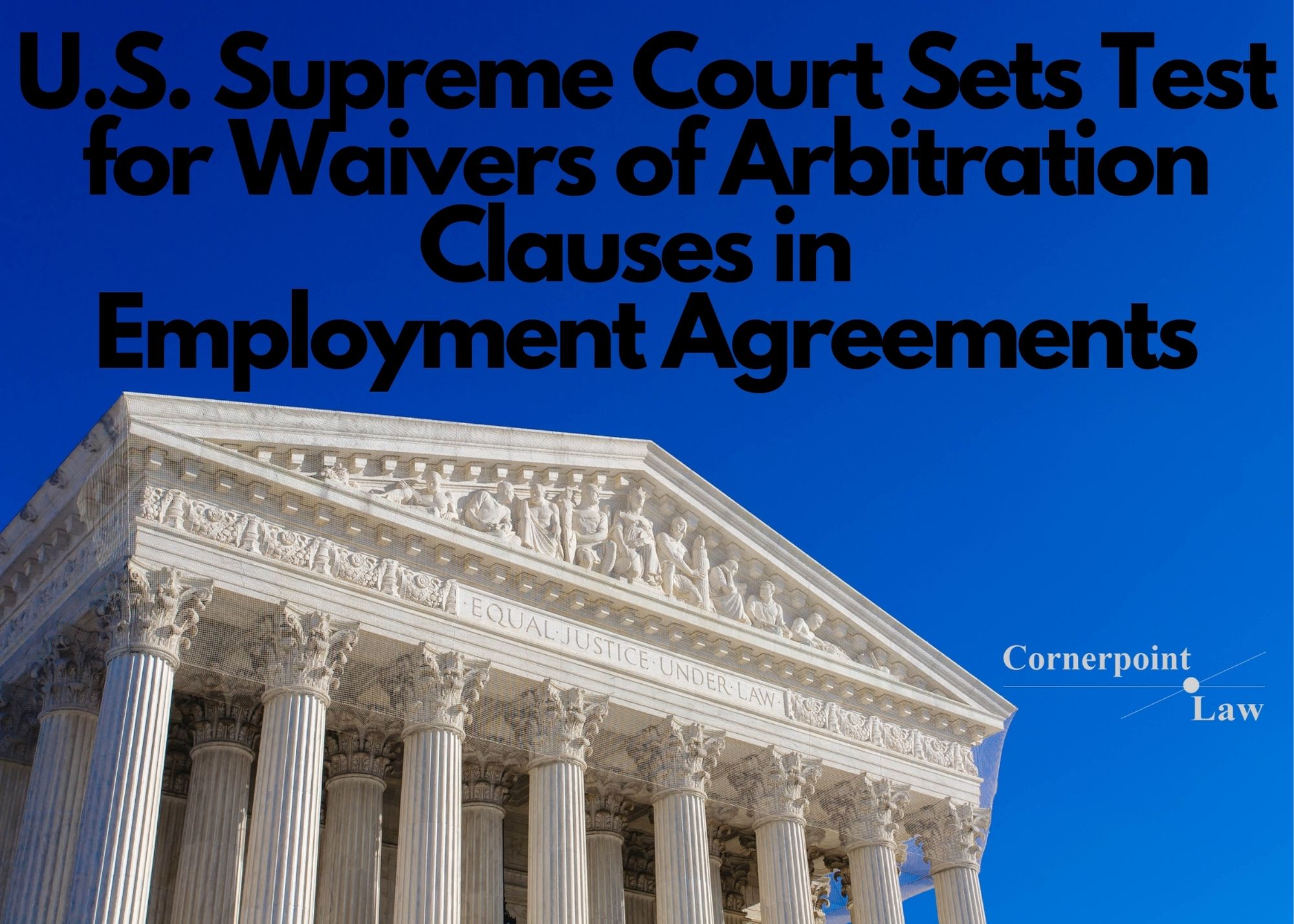What Kind of Dispute Did We Agree to Arbitrate?
April 28, 2021
Unauthorized use and/or duplication of blogposts without express and written permission is strictly prohibited. Excerpts and links may be used, provided that full and clear credit is given, and with appropriate and specific direction to the original content.
The author of this post can be reached by phone at 206-693-2718 or by email.
“Hereunder” Meant “The Contract”: A Cornerpoint Case Pop
By Stacia Hofmann
Cornerpoint Case Pops are dedicated to summarizing relevant, new cases — and their business and risk management lessons — in bite-size posts.
Arbitration, which is an alternative venue to court, has been a frequent subject of discussion on the Cornerpoint Law blog because it comes up so frequently in business transactions, employment law, contract drafting, and litigation and disputes.
Parties are not able to flip and flop between arbitration and court at their convenience, so in this blogpost, let’s look at why it’s important to determine which disputes to arbitrate.
The Case: JC Aviation Investments, LLC v. HyTech Power, LLC, Washington Court of Appeals (Division I, No. 81539-3-I, March 1, 2021)
Case Background
This is a business breakup case. Two businesses went into business together, forming a new LLC called HyTech Power, with each business acting as a member of the new LLC. The new LLC ran into financial trouble, and one of the members, JC Aviation, filed a lawsuit to dissolve and end the new LLC.
An LLC Member Can Petition a Court for Judicial Dissolution
RCW 25.15.274 allows a member of an LLC such as JC Aviation to ask a judge to dissolve and terminate an LLC when either it is not reasonably practicable to carry on the LLC in conformity with its governing documents, or when other circumstances render dissolution equitable.
The LLC Operating Agreement Had an Arbitration Provision
The other member, HTP, Inc., asked the court to transfer the case away from a judge and into private arbitration instead. HTP relied on a provision in HyTech Power’s LLC operating agreement that said:
The parties hereto will use their reasonable best efforts to resolve any dispute hereunder through good faith negotiations. In the event a dispute cannot be resolved informally within thirty (30) days of notice by one party to the other of such dispute, the parties agree that such dispute will be resolved exclusively through final and binding arbitration.
The LLC operating agreement also said that “hereunder” referred to the LLC operating agreement “as a whole.”
Arbitration Was Not Required Because There Was No Dispute Under the LLC Operating Agreement
The Court of Appeals agreed with the trial judge that arbitration was not required. While there may have been a dispute between the members as to judicial dissolution, there was no dispute about the parties’ promises in the LLC operating agreement. So, reverse engineering the language in the contract, we learn:
- Arbitration was required only for “disputes hereunder.”
- “Hereunder” was in reference to the LLC operating agreement.
- There were no dispute under the LLC operating agreement.
- Therefore, there was no obligation to arbitrate the dispute.
In other words, while every “dispute hereunder” is a dispute between the members, not every dispute between the members is a “dispute hereunder.”

Key Takeaway
If you’re considering adding an arbitration requirement to an agreement, you can choose which types of disputes to leave in court and which types of disputes to ship off to private arbitration. Should the scope of arbitration be broad, so that any dispute between the parties goes to private arbitration? Or should the scope of arbitration be narrow, so that only disputes for breach of contract go to arbitration? Working with an attorney — not only at the time that you’re putting together your contract, but also in the event of any type of dispute — allows you to more thoroughly weigh the pros and cons of court versus private arbitration.
Email or call me to see if Cornerpoint can help with your questions about arbitration or contracts.
This blog is for informational purposes only and is not guaranteed to be correct, complete, or current. The statements on this blog are not intended to be legal advice, should not be relied upon as legal advice, and do not create an attorney-client relationship. If you have a legal question, have filed or are considering filing a lawsuit, have been sued, or have been charged with a crime, you should consult an attorney. Furthermore, statements within original blogpost articles constitute Stacia Hofmann’s opinion, and should not be construed as the opinion of any other person. Judges and other attorneys may disagree with her opinion, and laws change frequently. Neither Stacia Hofmann nor Cornerpoint Law is responsible for the content of any comments posted by visitors. Responsibility for the content of comments belongs to the commenter alone.




